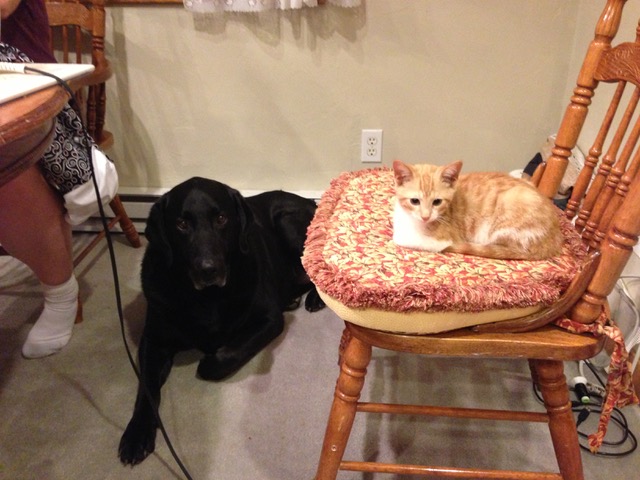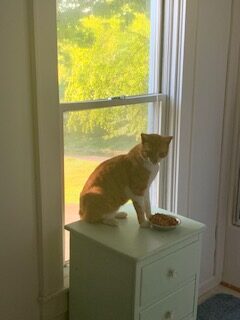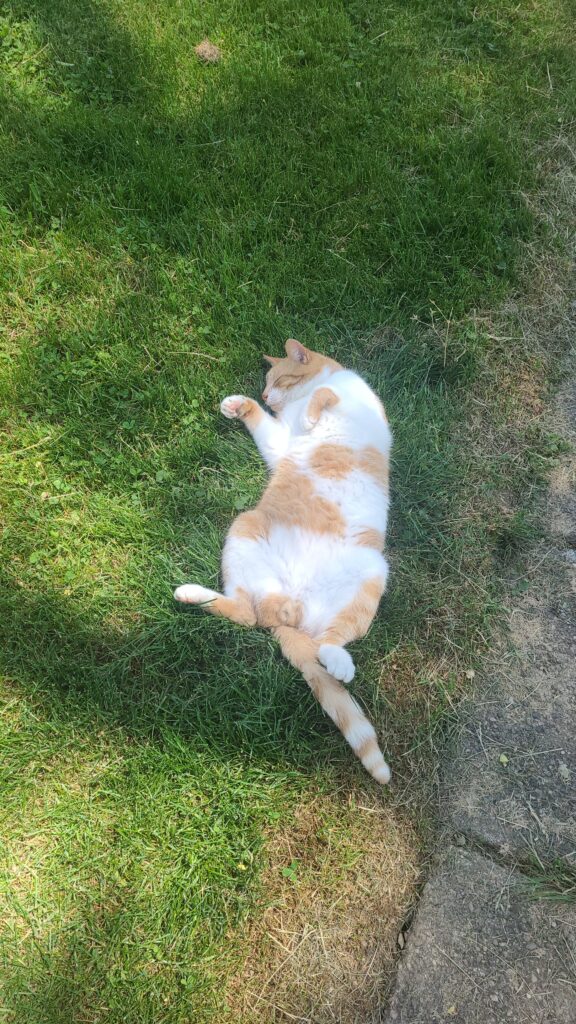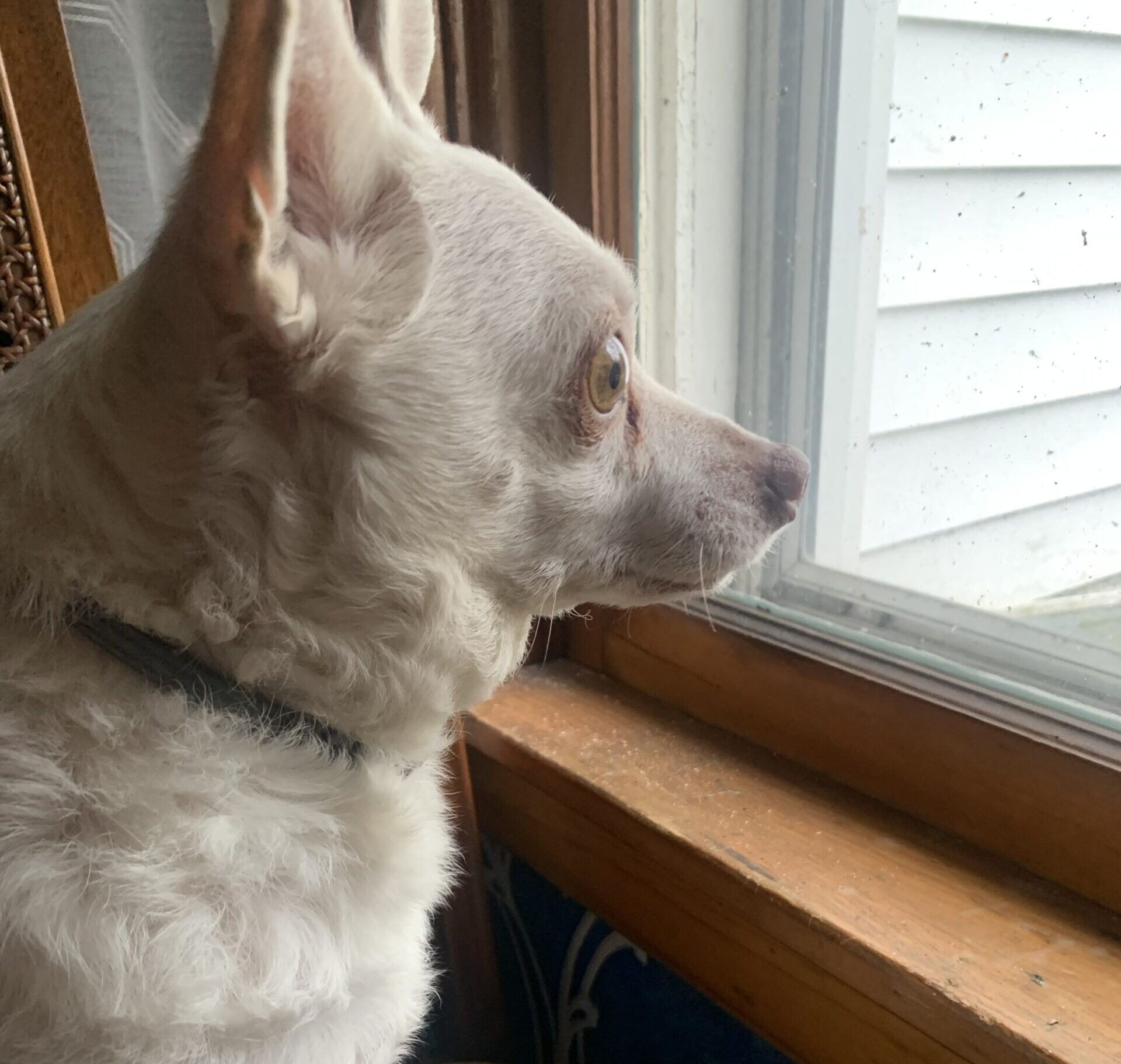
Name: Watson
Nicknames: Squeakers, Robot Kitty, Sir Watt, Distinguished Gentleman
Age: Flesh Prison: 11 years old Soul: 105 years old
Favorite Snack: Cat Food Gravy
Bedtime: 10am-4pm
Jobs: Bathroom escort, soup connoisseur, expert biscuit maker
Dislikes: Belly rubs and inattention
Motto: “Squeak” (Rough Translation: “Good lady, I require your finest delicacies.”)
Fun fact: Has survived an assassination attempt

Watson came into my life when I was fourteen years old, a birthday gift from my parents. They had visited a farm and found him—an orange kitten, small and vulnerable, wandering among the cattle, unnoticed beneath their hooves. Moved by his situation, they decided to bring him home. He arrived in a small box, unassuming and quiet, but from the moment I opened it, he revealed a spirited nature that would come to define him.
From the start, Watson was full of energy, darting through the house, attacking unsuspecting toes, and learning the ways of the world from our older cat, Sherlock. Under Sherlock’s watchful eye, he developed a sense of curiosity and composure, carefully observing the habits of our household. He often sat beside our dogs, Boe and Daisy, watching their routines with quiet interest. In his younger years, he spent his days alternating between long naps on our beds and extended explorations of the neighboring farms, always returning home at the end of the day.
As time passed and Sherlock and our dogs grew old, Watson remained, adapting to the changes in our lives. When I moved into a small blue house in a quiet neighborhood, he came with me. There, he met my husband’s cat, Muse, a young and timid feline. Having once been the student, Watson took it upon himself to mentor her, teaching her the ways of the world—though she never quite shared his enthusiasm for outdoor life.
In this new home, Watson quickly became a fixture of the neighborhood. He greeted people on their porches, made his presence known at their doorsteps, and, in time, took note of something concerning: the other cats in the area did not seem to hunt as effectively as he did. Whether out of instinct or a sense of duty, Watson began to take it upon himself to provide. He hunted regularly, bringing back small game, which he generously shared with the local strays. He also charmed the neighbors, earning their trust—and, more importantly, their offerings of food. Over time, it became something of a routine; Watson had created his own version of a soup kitchen, ensuring that no cat in the neighborhood went hungry.
For five years, he maintained this way of life. Then, one day, everything changed.

While making his usual rounds, Watson was startled by a sudden, sharp sound—a pellet gun. One of our more distant neighbors, intolerant of cats, had taken it upon herself to drive them away. Though Watson was not struck, the experience shook him. My husband, hearing the commotion, rushed to retrieve him. Though physically unharmed, Watson was noticeably different after that day. He became more cautious, less inclined to roam freely, and spent more time on our porch than out in the streets.
Some time later, just before Christmas, a violent storm struck. Watson, usually quick to seek shelter, did not return when called. We searched and waited anxiously until, hours later, he finally appeared—soaked, limping, and clearly injured. Upon closer inspection, I realized that his claws had been damaged, and one of his legs was badly injured. With no emergency veterinary services available, I did what I could. I splinted his leg, fed him a simple diet to aid his recovery, and kept him in a quiet space to rest.
During his recovery, he was restless, eager to return to his usual routines. But after what had happened, I knew something had to change. To keep him safe, we enclosed the porch, allowing him to be outside without the risks that had begun to take their toll. Watson did not take kindly to this adjustment. He had always come and gone as he pleased, and suddenly, his world had become smaller. For a time, he protested, but gradually, he adjusted.
A year later, we moved again, and Watson was once more free to roam. By then, though, age had caught up with him. He still ventured outside and hunted occasionally, but his days of providing for others were behind him. Now, he spends most of his time resting in the sun, napping in comfortable spots, and occasionally offering Muse the benefit of his experience.
His movements may be slower, and his once-bold spirit has softened with time, but those who knew him in his prime remember him as he was: a clever, dignified, and resourceful cat, a quiet guardian of his community, and a steadfast companion.



